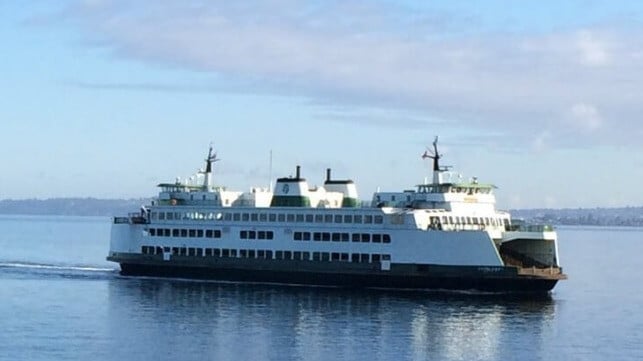Eastern Shipbuilding Wins Contract to Build Hybrid-Electric Ferries for WSF

A milestone has been achieved in plans to modernize and restore service for Washington State Ferries (WSF) with Florida-based Eastern Shipbuilding being awarded a contract to build three passenger RoRo ferries. The state says the process was its first competitive bid for ferry construction in more than 25 years, and will further contribute to the efforts to bring service back to pre-pandemic levels.
Washington Governor Bob Ferguson announced that after a year-long competitive bidding process that attracted interest from two shipyards, Eastern Shipbuilding has been selected to construct the three new 160-vehicle hybrid-electric ferries. The company won the contract after presenting the lowest bid, $714.5 million, which was six percent lower than WSF’s estimate, and significantly lower compared to its competitor, Washington-based Nichols Brothers Boat Builders.
The contracting process will move forward with the state reporting it expects to spend approximately $405 million for the first vessel, including an additional $150 million for owner-furnished equipment, construction management, WSF crew training, and risk contingencies. The second vessel will cost $360 million, and the third $325 million, as contingency risk decreases with lessons learned from each previous construction.
American-owned and operated, Eastern Shipbuilding has three shipyards on the Florida Gulf Coast with many years of experience building vessels for commercial clients and national defense, including the U.S. Coast Guard. The company has a portfolio of over 350 newbuild vessels, having recently delivered a new car ferry to McAllister’s Bridgeport & Port Jefferson Steamboat Company and in recent years the large ferries for New York City's State Island Ferry system.
The new contract marks the first time WSF has built ships outside of Washington in 50 years. The award of the contract is another significant element in the modernization of the WSF fleet. The company, which is the largest operating public ferry system in the U.S, has in recent years faced criticism of operating a fleet of aging vessels and reduced service.
“We’re restoring domestic service to pre-pandemic levels years ahead of schedule, improving crew retention, and soon will bring our first hybrid-electric vessel into service,” said Governor Ferguson.
Since assuming office in January, Governor Ferguson has made improving Washington’s ferry system a priority of his administration. In March, he announced his plan to delay the hybrid-electric conversion of two of the state’s largest ferries until after the 2026 World Cup. As a result, WSF expects to return to full domestic service this summer, for the first time since 2019.
In August 2023, WSF awarded a contract for the conversion of up to three Jumbo Mark II-class ferries from diesel to hybrid-electric power. A $100 million contract was awarded to shipbuilder Vigor to convert two of the largest ferries with an option to convert a third vessel in 2025, a program that was designed to extend the life expectancy of the vessels.
Since then, one hybrid-electric conversion has been completed on the Wenatchee at Vigor’s Harbor Island shipyard in Seattle. The vessel is expected to return to service later this month. Conversion of Tacoma and Puyallup has been delayed.

that matters most
Get the latest maritime news delivered to your inbox daily.
The state government, which owns WSF, is also prioritizing the welfare of the ferry workforce, cutting across recruitment, retention, and training as part of efforts to help stabilize the system. In the current budget, more than $39 million has been allocated for crew hiring, retention, and training.
WSF operates a fleet of 21 vessels in Puget Sound and the greater Salish Sea with interstate routes and service to British Columbia, Canada. In its modernization program, the operator intends to retrofit six current diesel ferries to hybrid electric, build 16 new hybrid vessels, retire 13 diesel ferries, and add charging power to 16 terminals.
